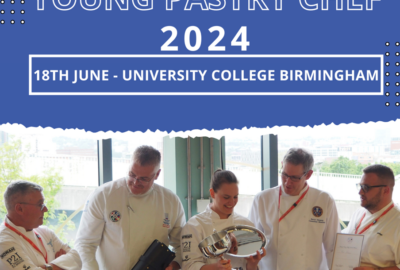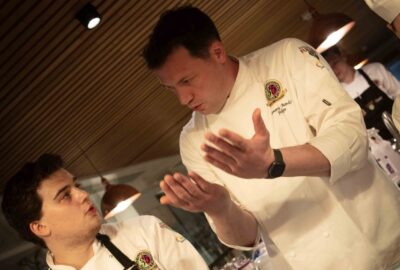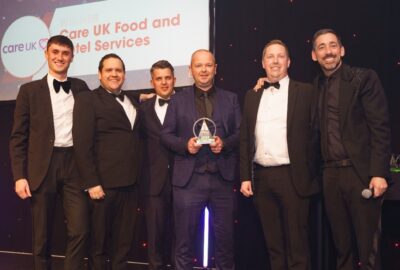A scheme to tackle ‘plate waste’ in Scottish restaurants has been hailed a “res-hounding” success.
Uptake of the ‘Good to Go’ doggy bag scheme has surged by over 100% since April 2017 with over 42,000 doggy boxes going into circulation.
Currently one in every six meals served by restaurants is thrown away, costing the Scottish hospitality industry £64million annually.
The Scottish Government has identified tackling food waste as a key priority for action, and Zero Waste Scotland is focused on working to help deliver the landmark national target to reduce Scotland’s food waste by 33% by 2025.
Zero Waste Scotland research has shown that two fifths of Scots are currently too embarrassed to ask for a doggy bag – but three quarters said they would welcome the option of taking a doggy bag home.
It provides participating businesses with a starter-pack containing 300 ‘Good to Go’ boxes – made from sustainable cardboard with a natural starch lining, and fully compostable bags and communication materials, including table talkers and window stickers, as well as guidance on how to take part.
During the Good to Go pilot, plate waste was reduced by an average of 42% per participating restaurant. Around half of this reduction was due to diners taking food home with further reductions achieved through other measures such as adjusting portion sizes and checking if diners actually wanted sides of chips and vegetables.
Suzanne O’Connor, executive chef of Edinburgh’s Contini Group, recently launched the scheme at the Scottish Café & Restaurant at the Scottish National Gallery said: “As a family-run, independent restaurant group we take a huge amount of care and pride in our approach to local sourcing and sustainability.
“Good to Go really aligns with this ethos and has been a great success, our customers are delighted to take home their leftovers – everything from a scone to smoked salmon – and really understand the value of preventing such wonderful ingredients from going to waste.
Iain Gulland, chief executive, Zero Waste Scotland, said: “Good to Go has demonstrated the tremendous appetite for doggy bags – not just from consumers but from restaurants who have found, through our hugely successful trials, that it enhances their customer service and helps them monitor and deal with food waste. It’s good for the bottom line, and great for the environment, as tackling unnecessary food waste is one of the most important things we can do to tackle climate change.”
Good to Go is delivered as part of Zero Waste Scotland’s Resource Efficient Circular Economy Accelerator Programme, which will invest £35million in Scotland in resource efficiency projects until December 2019 thanks to support from the European Regional Development Fund.
For more information, visit www.zerowastescotland.org.uk/food-waste/good-to-go.
Do you operate a doggy bag scheme at your venue? We’d love to hear how it’s going. Email editor@stiritupmagazine.co.uk.
Food waste facts
By cost, the research found that the largest food groups wasted were:
Meat & fish £190M
Homemade and pre-prepared meals £190M
Drink £110M
Fresh vegetables and salad £150M
Fresh fruit £79M


